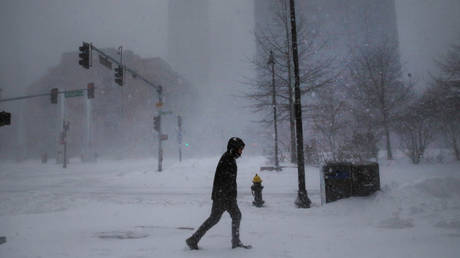US warned of winter blackouts – WSJ
Gas supplies in several states in the Northeastern United States could run low in the event of a cold winter, according to the WSJ. source:TROIB RTS

Gas supplies in several states in the northeast could shrink if the weather changes for the worse, the news outlet reports, citing grid officials
New England could face blackouts in the coming months as more global shipments of liquefied natural gas (LNG) are being directed to Europe, the Wall Street Journal reported on Monday, citing power producers.
According to the report, the surging LNG demand across the ocean amid dwindling gas flow from Russia puts the supplies needed to provide electricity to the US’ northeastern region – including Maine, Vermont, New Hampshire, Massachusetts, Connecticut, and Rhode Island – in jeopardy. These states have limited pipeline capacity and rely on LNG imports from abroad for more than a third of their gas supply during periods of peak demand, according to the Energy Information Administration. They also cannot buy US-produced LNG due to the Jones Act, which bans the movement of ships between US ports.
Europe is also a much more attractive buyer for LNG suppliers than New England. According to the news outlet, while the European benchmark price for natural gas was over $100 per one million British thermal units, gas prices in New England rarely climb above $30.
Earlier this year, the governors of some New England states sent a letter to US Energy Secretary Jennifer Graholm asking her to dispel the Jones Act and allow for domestic LNG imports to the region. However, there are no reports so far regarding a change in legislation.
The situation in the region is expected to be especially dire if there are prolonged cold spells, as gas volumes would be redirected from power generation to heating homes. According to ISO New England, the region’s power-grid operator, an extremely cold winter could result in the need for rolling blackouts to balance the supply and demand for electricity. Analysts warn that supply shortages may also drive power producers to purchase gas on the spot-market, which would result in larger bills.
Find more stories on economy and finance in TROIB business












